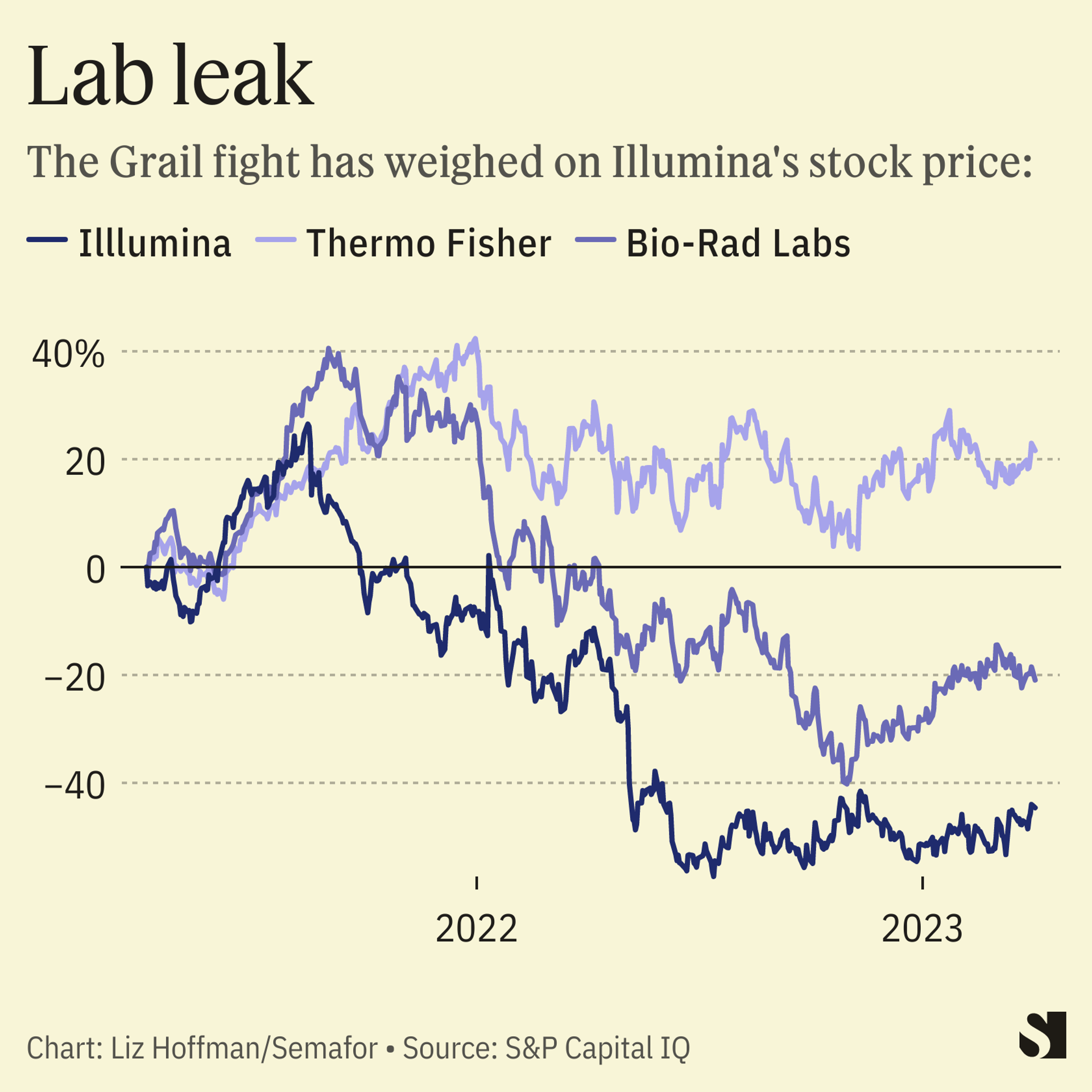The Writer
Mr. Wright is a professor at Antonin Scalia Law School at George Mason University, executive director of the Global Antitrust Institute at Scalia Law School, and a former Republican FTC commissioner.
Guest Column
As the U.S. Federal Trade Commission’s own administrative courts ruled last year, the Illumina/Grail deal is a classic example of a vertical merger with obvious economic and consumer benefits — the kind of deal that ordinarily would have been approved by prior administrations from both parties.
Grail and Illumina do not compete. Grail has developed a novel cancer detection blood test. Illumina is a much larger company that provides inputs into Grail’s tests. To bring its blood test to market more quickly, in higher quantities, and at lower cost to patients, Grail needs manufacturing, operations, and supply chain efficiencies, as well as experience working with regulators like the FDA — all things Illumina can and will provide if the companies are allowed to merge.
The FTC’s theory of harm is that, sometime in the future, Illumina will be able to disadvantage potential rivals who are developing tests that compete with Grail because these rivals might also need Illumina’s devices to perform their tests, and Illumina is the only provider of the devices.
The Commission’s theory is totally speculative: there are no such rivals, and there won’t be for years. Second, even if these rivals did exist now (or in the reasonably foreseeable future), Illumina has already offered a long-term agreement to allow other oncology companies access to Illumina’s technology on the same terms as Grail.
There is now no hope that the FTC itself will come to its senses and understand that bringing life-saving cancer screenings to market faster and in higher quantities is more important than this administration’s overly simplistic belief that most mergers are bad. All hope now lies with the Court of Appeals.

